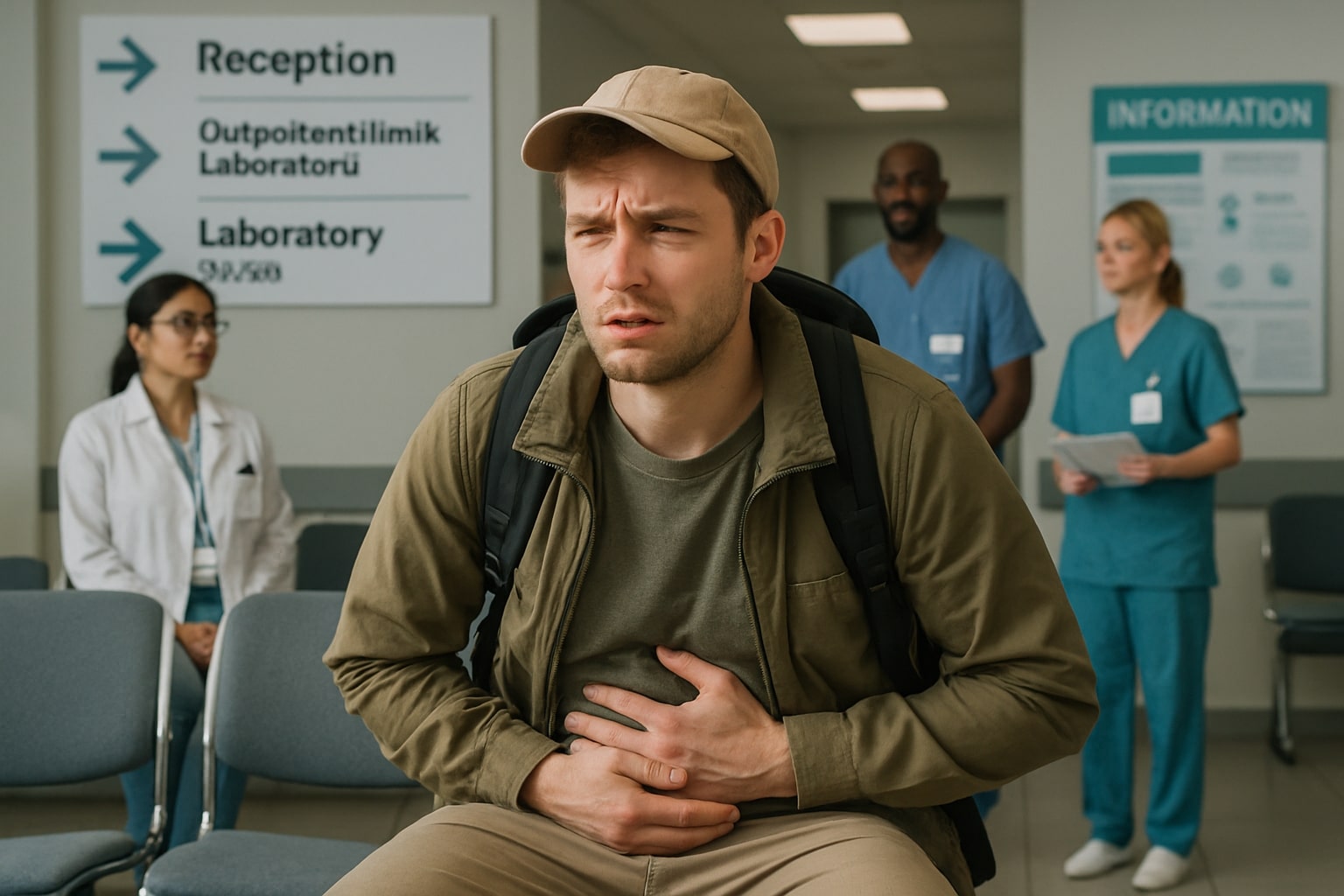Traveling to a foreign country is an exhilarating experience, filled with new sights, sounds, and cultures. However, the unexpected can happen, and falling ill is a traveler’s nightmare. Being sick in an unfamiliar place, away from your support system and regular healthcare provider, can be incredibly stressful. This guide will walk you through what to do if you get sick abroad, from preparation before you leave to handling a medical emergency in a foreign land.
The thought of a medical issue is often the last thing on a traveler’s mind, yet it is one of the most critical aspects of travel planning. Understanding the steps to take can make a significant difference in your health outcome and overall travel experience. Proper preparation can mitigate many of the risks and fears associated with getting sick far from home. This article provides a comprehensive overview to ensure you are equipped with the knowledge to handle such a situation calmly and effectively.
Before You Go: Essential Preparations
The best way to handle getting sick abroad is to be thoroughly prepared before you even pack your bags. This starts with researching the health risks of your destination. Check for any required or recommended vaccinations and get them well in advance of your departure date. It’s also wise to schedule a pre-travel check-up with your doctor to discuss your travel plans, get any necessary prescriptions, and ensure you are in good health for your journey.
One of the most crucial pre-travel steps is securing comprehensive travel insurance. Do not assume your domestic health insurance will cover you overseas, as most policies do not. When choosing a travel insurance plan, look for one that includes robust medical coverage, including emergency evacuation and repatriation. Read the policy details carefully to understand the coverage limits, deductibles, and the process for making a claim. Keep a digital and physical copy of your insurance information with you at all times.
Immediate Steps to Take When You Feel Unwell
The moment you start to feel unwell, it’s important to take immediate and calm action. First, assess your symptoms. If they are minor, like a common cold, you might be able to manage with over-the-counter remedies you brought from home. However, if your symptoms are severe, unfamiliar, or worsening, you need to seek medical attention promptly. Find a safe and comfortable place to rest and try not to panic. Staying calm will help you think more clearly and make better decisions.
Your next step is to find a reputable doctor or medical facility. Your travel insurance provider is often the best first point of contact, as they typically have a 24/7 emergency assistance line with staff who can direct you to vetted clinics or hospitals. Alternatively, you can contact your country’s embassy or consulate in the destination country; they can provide a list of local doctors and hospitals. In a serious emergency, you should know the local equivalent of 911 and go to the nearest hospital emergency room.
Navigating Foreign Healthcare Systems
Healthcare systems vary dramatically from one country to another. The quality of care, the cost, and the way the system operates can be very different from what you are used to at home. In some countries, you may find state-of-the-art medical facilities, while in others, the standards may be lower. It’s helpful to have a basic understanding of the healthcare system in your destination, which you can research before your trip. Be prepared for potential differences in communication styles and medical practices.
Communication can be a significant barrier when seeking medical care abroad. If you don’t speak the local language, try to find a healthcare provider who speaks English or bring a translation app or phrasebook with you. When you see a doctor, be as clear and detailed as possible about your symptoms, medical history, and any allergies you have. Don’t be afraid to ask questions until you fully understand your diagnosis and treatment plan. Keeping a written record of your consultations can also be very helpful.
The Role of Your Travel Insurance
In a medical emergency abroad, your travel insurance is your lifeline. As soon as you need medical treatment, you should contact your insurance provider’s emergency assistance hotline. They will guide you through the process, and in many cases, they can arrange for direct payment to the hospital, so you don’t have to pay out of pocket. Be ready to provide your policy number and a clear account of your situation.
Document everything. Keep all receipts, medical reports, and correspondence with doctors and your insurance company. This paperwork is essential for filing a claim. Most insurance policies require you to report a medical issue as soon as possible. Follow their procedures precisely to ensure your claim is processed smoothly. Understanding what is covered, such as specific treatments or medical evacuation, will prevent surprises later on.
Contacting Your Embassy or Consulate
Your country’s embassy or consulate can be a valuable resource when you get sick abroad. They can provide a list of local doctors, dentists, and medical facilities and help you get in touch with your family back home. In some cases, they can assist in arranging for a medical evacuation if local healthcare is inadequate. Consular staff can also help you understand the local healthcare system and provide translation services if needed.
However, it’s important to understand the limits of what an embassy can do. They cannot provide medical advice, pay for your medical bills, or provide medical care themselves. Their role is primarily advisory and logistical. While they can be a great help in a crisis, they are not a substitute for good travel insurance and personal responsibility. Always keep the contact information for your nearest embassy or consulate handy.
Managing Prescriptions and Medications
If you take regular medication, managing your prescriptions abroad requires careful planning. Bring enough medication to last your entire trip, plus some extra in case of delays. Keep it in its original packaging with a copy of your prescription and a letter from your doctor explaining your condition. This is crucial for getting through customs and for any interactions with foreign medical professionals.
Be aware that some medications that are legal in your home country may be illegal or require special permits in others. Research the laws of your destination country regarding your specific medications. If you run out of medication, getting a refill can be challenging. Your embassy or a local doctor recommended by your insurance company may be able to help, but it’s not always a straightforward process. It is far better to be over-prepared in this regard.
Medical Evacuation and Repatriation
Medical evacuation is the process of moving a patient to a location with a higher level of medical care, which could be another city or even another country. Repatriation is the process of returning a patient to their home country for care. These services are typically reserved for serious medical conditions where the local facilities are unable to provide the necessary treatment. Medical evacuation is a complex and expensive undertaking, often involving private air ambulances and specialized medical teams.
This is where having robust travel insurance with high coverage limits for medical evacuation becomes critical. The cost of a medical evacuation can run into tens or even hundreds of thousands of dollars. Without insurance, you would be responsible for these costs. Your insurance company will be the one to determine if a medical evacuation is necessary, based on medical reports from your treating doctor. They will then handle all the logistics, which is an immense relief in a stressful situation.
Mental Health and Well-being While Sick Abroad
Getting sick in a foreign country is not just a physical challenge; it can also take a significant toll on your mental health. Feeling isolated, anxious, and helpless is common. You are away from your usual support network of family and friends, which can exacerbate feelings of distress. It’s important to acknowledge these feelings and take steps to care for your mental well-being.
Stay connected with your loved ones back home through video calls and messages. Sharing what you are going through can provide comfort and a sense of connection. If possible, have a travel companion with you for support. Focus on small, positive things and try to maintain a sense of routine where you can. If you feel your mental health is suffering significantly, your insurance provider or embassy may be able to connect you with mental health support services. Your emotional resilience is a key part of your recovery.



